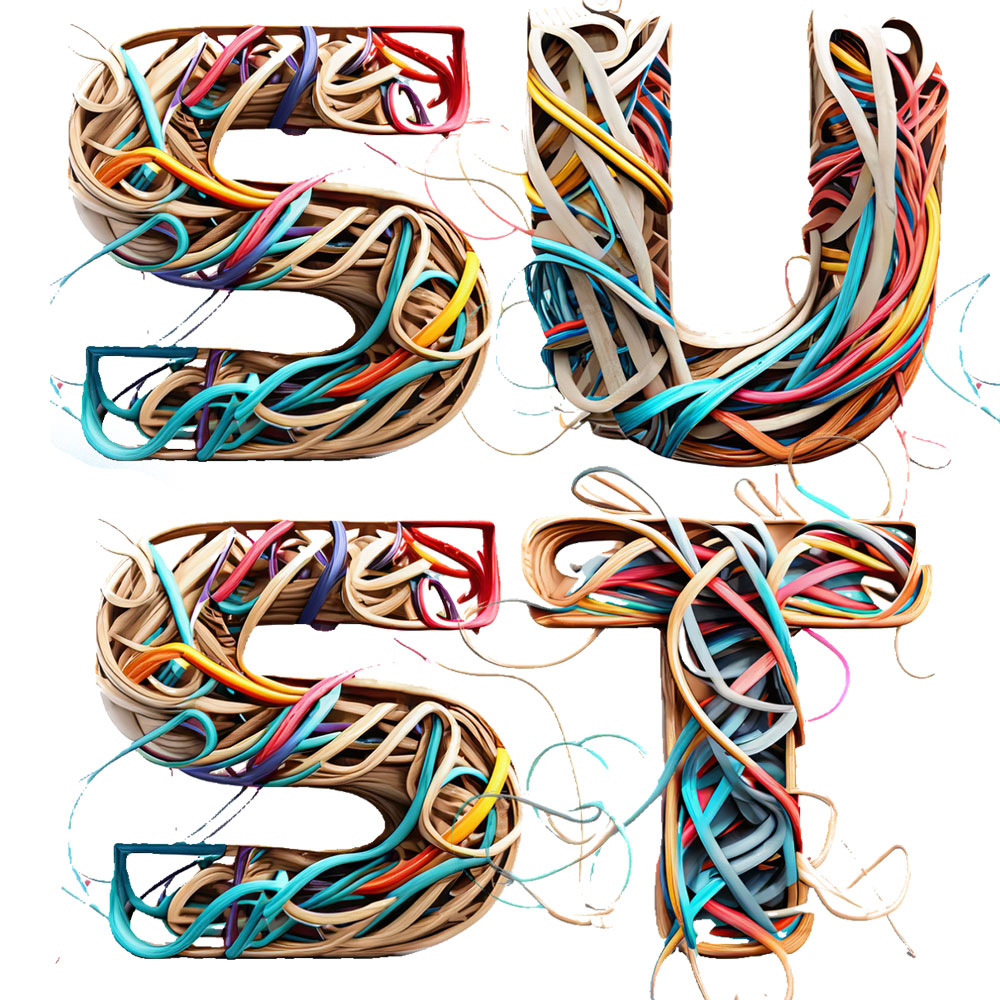New Policy on LLMs and Transparency in Work Creation
We are implementing a new policy to ensure transparency and clarity in the creation of student works, especially those involving Large Language Models (LLMs) like GPT. This policy applies to all works, including seminar papers, thesis, and project reports, and is designed to foster academic integrity, rigor, and replicability in your research.
Key Changes:
- All works must present a clear and transparent account of the methods and tools used in their creation. This includes documenting any use of AI or LLMs in the process.
- When LLMs are used, students are required to submit the complete chat history. This includes both the prompts given to the LLM and its responses. Students should ensure that they use a single chat session, save it in its entirety, and send it separately along with their work. This will provide a comprehensive record of how the work was generated.
- In the methods chapter of your work, there must be a specific sub-chapter detailing the tools and methods used to support your writing and study. This is to ensure that all methods, including AI-based tools, are fully explained and their role in the creation process is clear.
Winter 24/25

Lecture with integrated practice
Entrepreneurship with Purpose (Eship-purpose)
- Lecturer:
- Annemarie Bloch, M.A.
- Prof. Dr. Hannes Rothe
- Contact:
- Term:
- Winter Semester 2024/2025
- Time:
- see description
- Language:
- English
Important Notes:
NEWS regarding the examination registration
Dear students, this course will have a separate registration period. It will be announced here and via email. The registration period will be next year, so keep checking your emails in January. An email will go to you separately at the beginning of November together with a confirmation of registration.
The blockseminar will take place in lecture-free time in February, after the first exam phase. Specific dates will be announced. The blockseminar takes place over a course of 8-10 days, 09:30-16:30h. Prior, a link to an online course on Business Model Canva is provided to get familiar with relevant terminology and concepts.
Description:
This course is all about you and your ideas, purposeful doings, sustainability and teamwork.
In Entrepreneurship with Purpose, students learn about the characteristics of entrepreneurial ventures that are driven by a dual mission: a strong social, societal and/or ecological purpose alongside economic goals. They learn about, discuss, and reflect upon social and economic purpose during ideation, team building and business modelling. They get acquainted with ideas, tools, processes and methods from various "practices" in business and organisations, like Theory U, New Work and Design.
You students are invited to reflect upon and critically explore if and how social/ecological and economic purpose can be potentially aligned in entrepreneurial ventures. Individually and in teamwork, you reflect upon how personal values can drive the various blocks of a venture creation process. You experiment in teams to deal with potentially conflicting values and interests to jointly find out how to align them in a collectively created idea.
In the course, the concept of regeneration, the process Theory U and contemplation and expression through arts are used to explore how an entrepreneurial mindset can foster action towards sustainable activities.
The idea of regeneration is to nurture and restore natural ecosystem. In the course, we ask how you can apply entrepreneurship to integrate nature, its value and its limited capacities into you team’s venture and, generally, into business activities.
Theory U is a process and method developed and applied by the Presencing Institute (Otto Scharmer, Katrin Kaeufer & team). Its methods and tools are used in the course to explore individual values and mindsets. It frames the teamwork. It is used as an approach for reflection, co-creation and as one potential perspective on necessary societal transformations.
In contemplations on arts and as form of expression, you deal with arts both in theory and in practice. You wilil look at art for inspiration and to engage with its critical power. You will make art to express, reflect and, yet again, look. Through arts, we engage with different aspects of entrepreneurship, like the consideration of stakeholders, prototyping, and the integration of nature in business activities.
Learning Targets:
You’ll learn about
- 17 Sustainable Development Goals (SDGs) of the United Nations
- Earth’s systems and planetary boundaries
- Regenerative or hybrid organizations
- Theory U as process and method
- Purpose for the individual and the enterprise
- Values in the individual, a team and for a business
- Organization, roles and functions in a team
- (Digital) tools for organization, idea development and project execution
- Business Model Canvas for understanding and building business ideas
- Business Model Canvas and Sustainability
- Idea development, design thinking tools and thinking
This course allows you to collect credits for the Sustainable Education Certificate (BNE)
Outline:
For a successful completion of the course, active and regular participation is needed. Why? You'll be working in teams everyone in a team wants to have equal and fair learning and contribution parts. Plus, it is all about your ideas.
Active participation contains "homework" that is prepared in advance for single sessions. What does this mean? You'll be continuously working on and for your own idea. You will also be developing them throughout the course. Regular participation in activities is simply more fun for all. This concerns specifically tools and methods used for ideation processes as well as concerning applications of Theory U - again all for you and your ideas. Regular pitches of the current state of work are part of the course, too.
While this may all sound a lot - the most important thing is that you have time in this course to pursue your own ideas, discover yourself and what is important to you and how you can create purposeful ventures through this. And throughout all this, we won't forget to have fun :)
You'll learn about
- 17 Sustainable Development Goals (SDGs) of the United Nations
- Earth’s systems and planetary boundaries
- Theory U as process and method
- Purpose for the individual and the enterprise, deep purpose
- Values in the individual, a team and for a business
- Organization, roles and functions in a team
- (Digital) tools for organization, idea development and project execution
- Business Model Canvas for understanding and building business ideas
- Business Model Canvas and Sustainability
- Idea development, design thinking tools and thinking
Sessions with input and teamwork will alternate with sessions of self-studying individually and in teams.
Literature:
Literature will be given in class next to video and audio material.
It is beneficial for students to get acquainted with concepts in and ideas behind the Business Model Canvas (BMC)
- Osterwalder, A., Pigneur, Y., Bernarda, G., & Smith, A. (2015). Value proposition design: How to create products and services customers want. John Wiley & Sons.
- Osterwalder, Alexander, Pigneur, Yves. (2011): Business Model Generation, Frankfurt am Main 2011.
- Scan through the book, get an idea and zoom into the nine sections of the BMC, so you have an idea prior to the course, what the sections entail.
Don’t worry, you’ll have plenty of time to get to know the business model canva – we’ll provide access to more material.
Methods of Assessment:
Portfolio: a) Frequent presentation of results (throughout). b) Final presentation of results in last session (in Blockseminar) c) written report (3-5 pages)
Teaching
We conduct research on the intersection between digital entrepeneurship, digital ecosystems, and organizing data and knowldedge. We will provide multiple courses that help to explain changes on firm- and ecosystem levels using multiple theories and methodologies. Our teaching is usually highly interactive and builds upon concepts of blended learning, oftentimes 'flipping the classroom'. It is important to us to not only reflect latest findings of information systems research with our students but also to work together on applying that knowledge.
Our teaching extends to Bachelor, Master, PhD and Postdocs. Offers for PhD and PostDocs will be more clearly defined in the following months.

